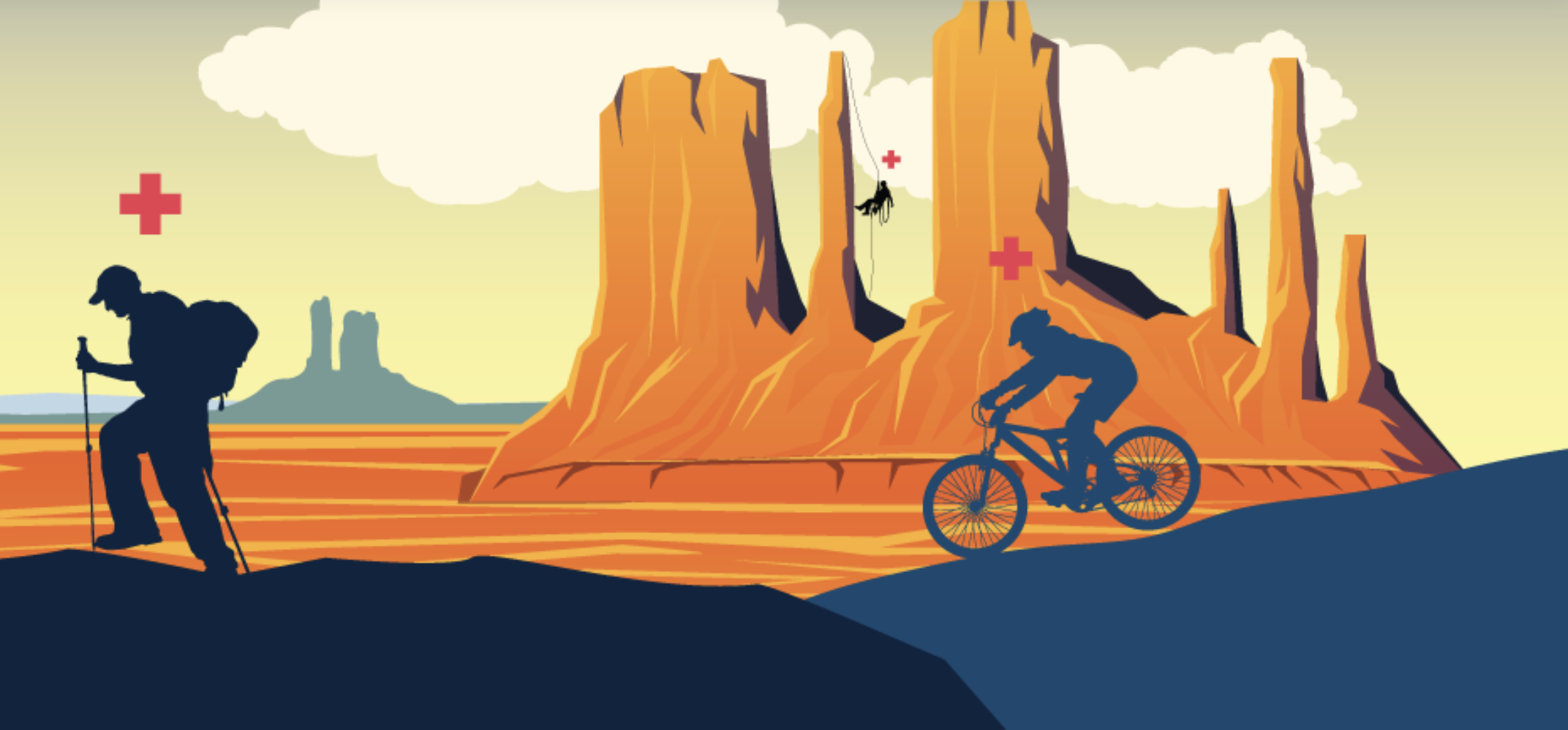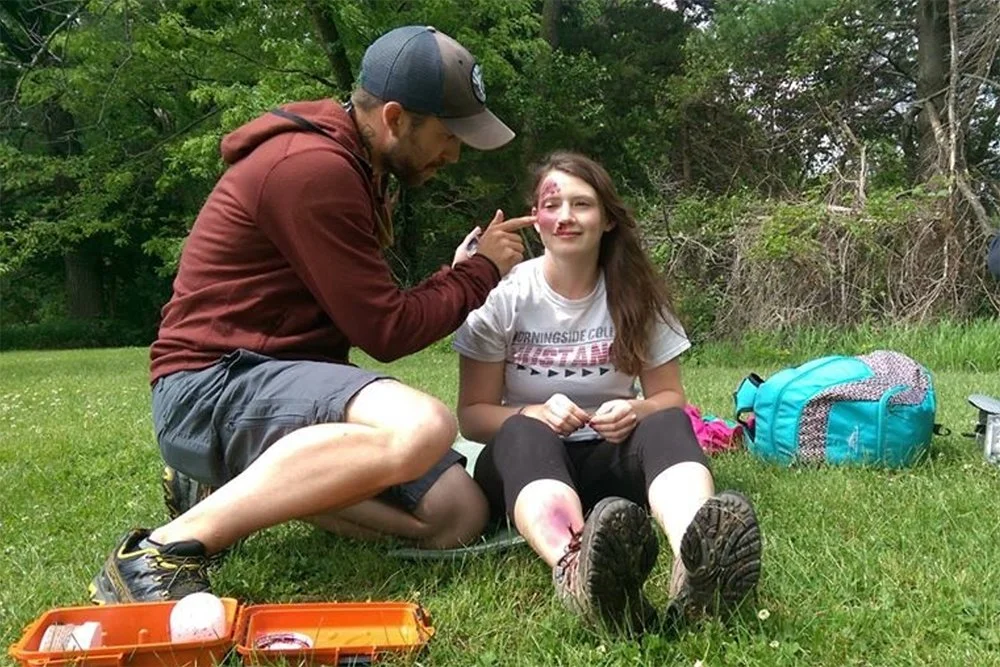
WILDERNESS FIRST AID
ESSENTIAL SKILLS FOR OUTDOOR ENTHUSIASTS
You're climbing/hiking/skiing miles from the trailhead, without cell service and someone in your group is injured. In that moment, your knowledge and skills become the difference between a manageable situation and a crisis.
Knowing how to respond to medical emergencies isn't just useful—it's essential.
WHY TAKE THIS COURSE?
Standard first aid assumes help arrives in minutes. Wilderness emergencies are different. You need to assess injuries, make critical decisions, stabilize patients, and navigate evacuation with limited resources.
This course gives you the skills and confidence to handle backcountry emergencies effectively. If you spend time in remote terrain, this training is indispensable.
COURSE DETAILS
Dates: November 8-9, 2025
Time: 9:00 AM - 6:00 PM (both days)
Location: Ascent New Haven, New Haven, CT [map]
Cost: $325
Certifications Earned (2 years):
+ Desert Mountain Medicine Wilderness First Aid
+ Desert Mountain Medicine CPR
+ Wilderness Anaphylaxis Training
Training by:
Jackson Hole Outdoor Leadership Institute
Certification Provider:
Desert Mountain Medicine
WHAT YOU’LL LEARN:
Patient Assessment & Stabilization
Systematic wilderness patient assessment
Life threatening injury recognition
Shock & trauma management
Environmental Emergencies
Hypothermia, heat illness
Altitude related sickness
Lightning and other environmental hazards
Common Injuries
Stabilizing fractures, dislocations, sprains
Wound management and infection prevention
Head and spine injuries
Critical Skills
CPR and basic life support (included)
Anaphylaxis recognition and treatment
Patient carries and evacuation techniques
Rescue decision making
ABOUT THE INSTRUCTOR
Christopher Broughton-Bossong is a New Hampshire-based Paramedic and Wilderness Rescue Responder with extensive experience in emergency medicine and backcountry response.
As a Jackson Hole Outdoor Leadership Institute instructor, Chris brings real-world expertise from both urban EMS and remote wilderness rescue operations. His teaching combines technical medical knowledge with practical field experience, preparing students for the realities of backcountry emergencies.
FAQs
-
This course is designed for anyone who ventures into remote areas:
Rock and ice climbers heading into alpine or backcountry terrain
Hikers and backpackers on multi-day trips
Ski tourers and backcountry skiers in remote mountains
Outdoor guides and trip leaders responsible for groups
Outdoor educators and program staff
Mountain bikers, trail runners, and adventure athletes
Anyone who spends significant time beyond quick access to emergency services
No medical background required. This course starts with fundamentals and builds practical skills you can use immediately.
-
Wear comfortable, weather-appropriate clothing suitable for indoor and outdoor activities. Bring a notebook, pen, water bottle, and lunch/snacks for both days. All medical training equipment is provided.
We like to practice improvising responses using items you commonly find in your backpack. After enrollment, you will receive a more complete packing list of items to bring with you.
-
The course includes hands-on practice scenarios that may involve kneeling, lifting, and moving patients (using other students as practice patients). A moderate level of physical fitness is helpful but not required. If you have disabilities or physical activity limitations, please let your instructor know.
-
No. This course is designed for beginners and assumes no prior medical knowledge.
-
No, please bring your own lunch and snacks. We'll take a break midday, and there are nearby food options in New Haven.
-
Your WFA and CPR certifications are valid for two years. Recertification courses are available to maintain your credentials.


